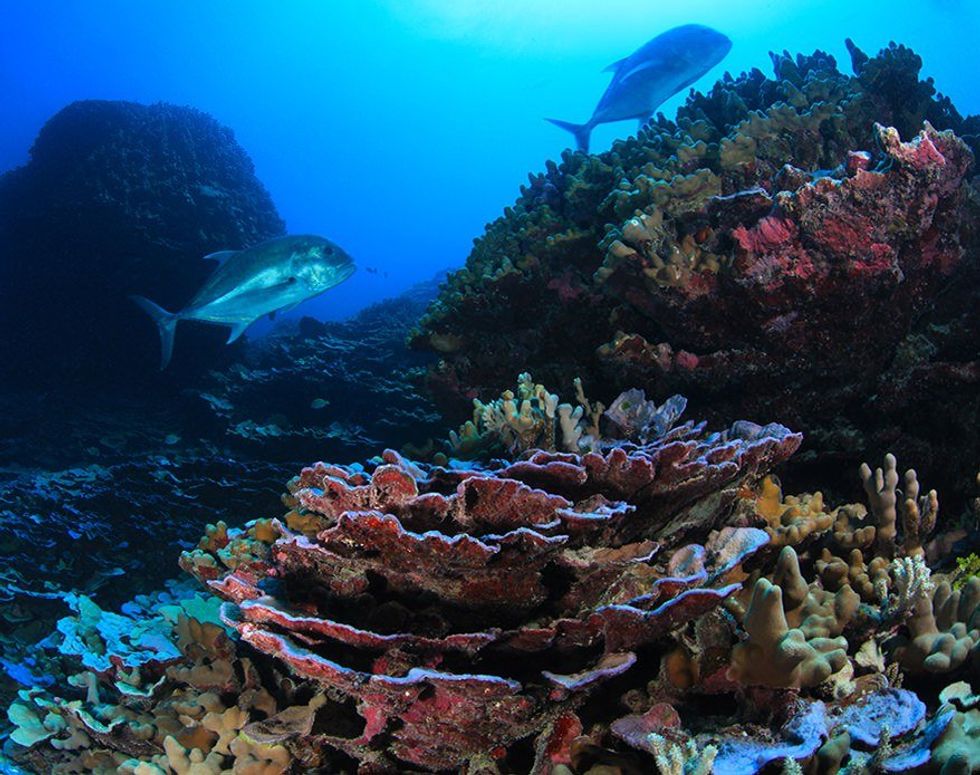They always say everything is bigger in Texas, but on this occasion it’s bigger in Hawaii… more exactly it’s over twice as big as Texas. We’re talking about UNESCO World Heritage Site, Papahānaumokuākea Marine National Monument, which is home to over 7,000 species and extensive coral reefs in crystal-clear waters. This remote stretch of Pacific Ocean includes Hawaii’s uninhabited northwestern islands, and was made into a 140,000 square-mile National Monument by President Bush in 2006. The expansion of the protected area to 582,578 square-miles by President Obama comes at the end of a week celebrating the National Park Service’s 100th anniversary. The announcement also happened to come on the eve of the World Conservation Congress, which, you guessed it, is hosted in Honolulu.
One of the biggest issues surrounding marine conservation is overfishing, and not surprisingly, acts that create or expand protected marine areas, such as Obama’s, are not without their opposition from the fishing industry and others. Though the industry is generally regulated around the world, illegal fishing and problems with the existing regulations still present a challenge in maintaining healthy and diverse marine ecosystems. According to the UN Food and Agriculture Organization (FAO), approximately 30% of fish stocks were overfished in 2013, and with hundreds of millions of people around the world relying on the Ocean as their main food source, the lurking issues surrounding overfishing are not pleasant.
For Hawaii specifically, the expansion of Papahānaumokuākea is a divisive issue. Some are happy to conserve the precious marine ecosystem, with about 25% of species being unique to the area, while others are heavily concerned with its effects on Hawaii’s all-important fishing industry. Hawaii has an established regulatory process called “no-take,” which cuts-off areas from fishing based on a 6-month cycle and is vetted through public process. Opponents to Obama’s expansion via Teddy Roosevelt’s Antiquities Act argue that the system in place has proven to be beneficial, and that the lack of communication and public input is unfair. Conversely, locals in support of the change say that it is an issue beyond the fishing industry. Conservation of these waters is something that will have a positive effect on the environment for future generations.
With its expansion, Papahānaumokuākea becomes the largest protected area on Earth, and larger than all other US National Parks combined.





















